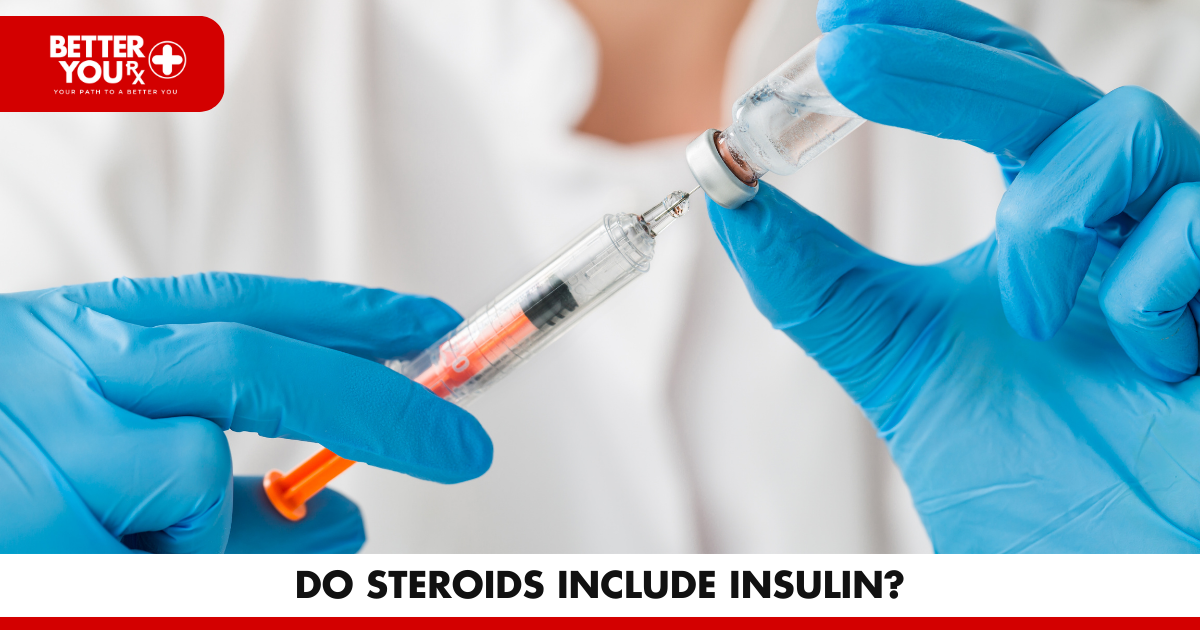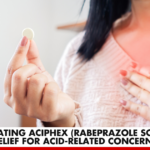Are insulin androgens? Many diabetics and fitness fanatics have posed this subject in forums all over the internet.
Look no further if you’re one of the numerous people asking yourself this question. We’ll answer your question and explain why there are conflicting responses in the process.
No, that’s the solution. Yes, insulin is not a steroid; that much is true. In contrast, insulin is a peptide hormone made of amino acids.
Describe insulin
Insulin regulates an important metabolic activity (energy production), which is necessary for survival. Understanding what insulin works and how it impacts your body is important since it can have an impact on your general health.
The pancreas is situated behind the stomach and produces insulin. Insulin synthesis is regulated by hormones, including blood sugar. A person with a healthy metabolism produces and releases insulin in a carefully regulated manner, enabling the body to balance its metabolic requirements. Insulin controls the body’s metabolism of its meals by boosting glucose absorption into the liver, skeletal, and fat cells. These cells use glucose as fuel or, when needed, convert it to fat.
With this knowledge, you may be asking why someone may classify insulin as a steroid.
Because steroids are chemically designed to resemble hormones that are naturally produced in the body, insulin is frequently regarded as a steroid. The synthetic insulin shots persons with diabetes administer to themselves are an illustration of why insulin is referred to as a steroid.
As we’ve already mentioned, the hormone insulin is a peptide made of amino acids. Steroids, on the other hand, are regarded as belonging to the lipid class of substances. Because of this, insulin is distinct from other hormones that the body produces as steroids.
Insulin can assist diabetes individuals’ blood sugar levels both before and after meals. Take all additional prescribed drugs as directed by their doctor, and make sure you adhere to the recommended dosage. If they manage their diabetes properly, someone with diabetes can go about their daily activities without any limits. Additionally, exercise is crucial for persons with diabetes and is not just something that a healthy person should do. Make careful to check your blood sugar levels frequently throughout the day. Additionally, if you have any emergencies, get in touch with your doctor.
A healthy diet and an efficient exercise regimen may help a diabetic’s insulin dosage work better because they mimic the insulin your body produces. Depending on the person’s circumstances, it would also depend on the kind of insulin product they use. For instance, two different diabetics with different lifestyles might receive isophane, an insulin that starts working after 1.5 hours, and glargine, an insulin that releases over 24 hours.
Adverse effects
You would think that if you adhere to your doctor’s recommendations, take only the prescribed quantity of insulin, maintain a nutritious diet, and exercise frequently, you wouldn’t have any negative side effects.
Unfortunately, this is untrue. Even with the right precautions taken, certain side effects could still occur.
Knowing what to watch for will help you be ready for any negative effects. Here are a few instances of possible adverse effects for someone using insulin:
Frequently Occurring Skin Issues
Because they must puncture their skin to receive the insulin shot, difficulties are a frequent side effect that many diabetics have.
Redness, itchiness, irritation, thickening of the skin at the injection site, discomfort, and skin dimpling are a few examples of frequent skin adverse effects.
Incorrect dosage
An individual with diabetes could occasionally unintentionally use too much insulin. This can also occur if you don’t use the recommended amount of insulin that your doctor has prescribed. Using an insulin degludec in place of an insulin glulisine, for instance, or vice versa. Low blood sugar levels, nausea, fatigue, increased hunger and thirst, paleness, headaches, slurred speech, blurred vision, increased palpitations, mood swings, anxiety, unconsciousness, seizures, irritability, tingling or numbing, and a loss of balance could occur as a result of this. Please dial the poison control hotline if this occurs.
Gaining Weight
Yes, insulin may contribute to weight gain. Additionally, it might make your arms and legs swell. Because insulin helps to appropriately control blood glucose levels in the body, it may contribute to weight gain. Insulin is responsible for absorbing glucose in the body’s cells.
When the body’s cells contain too much glucose, a problem arises. This is later converted to fat. Regular exercise, calorie counting, and blood sugar monitoring are ways to avoid this.
Allergies
Some diabetic individuals have developed allergies to their insulin, resulting in rashes all over their bodies rather than just where they were injected. Each diabetic patient must honestly disclose any allergies to their doctor before receiving an insulin prescription. Each insulin product may have a unique set of chemicals, which can result in adverse responses. It is important to review the ingredients on insulin pens and vials with your healthcare physician.
Levels of Potassium
Consuming insulin might cause potassium levels to fluctuate. Constipation, cramping in the muscles, shortness of breath, and weakness may result from this. It is common knowledge that insulin causes hypokalemia and transfers bodily potassium into cells, preventing it from being eliminated through the urine. Additionally, potassium seems to strengthen the anti-natriuretic effects of insulin. During insulin-induced hypokalemia, blood levels of aldosterone fall while those of renin and angiotensin II rise. In turn, renin-angiotensin-aldosterone modifies glucose tolerance by altering the potassium levels in the blood. This prompts the release of insulin caused by glucose.
The majority of insulin adverse effects are those listed above. You need not worry if you have diabetes.
How Do Steroids Work?
Let’s discuss steroids now that you are familiar with what insulin is.
The phrase “glucocorticoids are steroids” is more accurate; the more prevalent and less precise term “steroid” is. Glucocorticoids, which the kidney’s adrenal glands naturally make, have anti-inflammatory qualities. The metabolism of glucose also involves glucocorticoids. In addition to the steroids the body naturally produces, there are also synthetic steroids that function similarly to hormones to reduce inflammation. The generic names for glucocorticoids with systemic effects (also known as systemic) are prednisone, hydrocortisone, and dexamethasone. The glucocorticoids fluticasone, beclomethasone, and budesonide are inhaled directly into the lungs. Inhaled glucocorticoids can be used to treat asthma, chronic lung diseases like Chronic Obstructive Pulmonary Disease (COPD), and other illnesses. There are lotions and creams in addition to topical glucocorticoids like hydrocortisone and betamethasone.
Similar to testosterone, steroids work as artificial hormones to increase muscular growth. Our bodies’ anabolic hormones support the maintenance of a lean, durable body. They are essential to bodybuilders’ success because of this. A bodybuilder must maintain a rigorous workout schedule while adhering to tight diets that may include high-calorie intake during the bulking stage and reduced caloric intake during the cutting stage. This is a lot for the body to manage, so it’s understandable that they might seek out insulin for an “extra boost” given their rigorous exercise regimens. Competition in bodybuilding is fierce, and competitors do try to gain every advantage they can.
Use of Insulin in Bodybuilding
The body’s muscles can be maintained with the aid of insulin. This is yet another factor that some people can use to argue that insulin is a steroid.
The following describes how insulin interacts with the body’s muscles:
- Insulin aids in muscle retention by combining with anabolic drugs like human growth hormone (HGH) or testosterone.
- Insulin helps to stop the deterioration of muscle.
- Insulin encourages the storage of nutrients.
- Although it doesn’t directly encourage it, insulin facilitates the process of muscle growth.
- Insulin slows or stops the body’s breakdown of protein, fats, and glycogen.
- Insulin aids in the production of muscle proteins.
Many bodybuilders agree with the fifth point listed above. This is due to the fact that insulin either stops or slows the breakdown of glycogen. As a source of carbs, glycogen is kept in muscles. As a result, bodybuilders now prefer to use insulin as a post-workout supplement. Why are bodybuilders fond of this? This is due to the fact that delayed glycogen makes muscles feel more full. To encourage the accumulation of glycogen, bodybuilders take insulin after workouts.
One fact concerning insulin and muscle growth is that it has absolutely no effect on the muscles in the absence of protein. The fact that insulin and protein both benefit the body’s muscles explains why so many bodybuilders now include insulin in their supplement regimens.
The usage of insulin in conjunction with anabolic steroids and growth hormones is common among bodybuilders. Despite not being the safest combination, this one can improve their performance as a whole. Before using any insulin, steroids, or growth hormones, please consult a physician.
Serious negative repercussions may result from this kind of routine. The body’s blood sugar levels can be dangerously lowered by excessive insulin, steroids, and growth hormones, especially when these substances are used in uncontrolled doses. It is crucial to remember that this could result in poisoned death. A doctor should always be consulted before using insulin.
Summary
Today, it’s a popular misperception that insulin functions like a steroid. This article outlined how competitors may use insulin as a component of their supplements despite the fact that it is not a steroid. Despite the fact that it helps with glycogen levels, insulin is mostly used to treat diabetes, not by bodybuilders who are searching for any edge they can get. However, it’s also true that if you’re a bodybuilder, insulin might aid in your efforts to add muscle. However, it’s crucial that you talk about this option with your doctor rather than starting insulin treatment because you read about it in an online article. If you have questions about medications like Ozempic (semaglutide) online from Canada, consult your healthcare provider for guidance on your specific needs.
Unlock your potential with Better You Rx Pharmacy. When it comes to managing your health and wellness, we’re here to provide you with the right medications and prescriptions tailored to your needs. Don’t let confusion cloud your journey – if you’re seeking clarity on insulin and its role, trust us to guide you. Our experienced pharmacists are dedicated to ensuring you have accurate information and the right solutions for your concerns. Choose Better You Rx Pharmacy for personalized care and take the first step towards a healthier, better you. Your well-being is our commitment.



